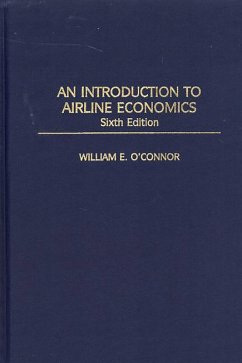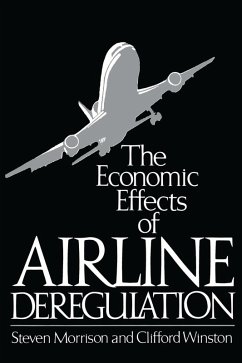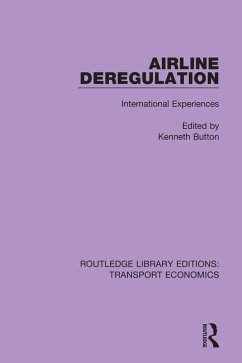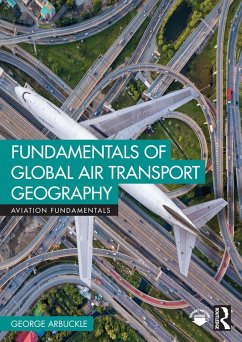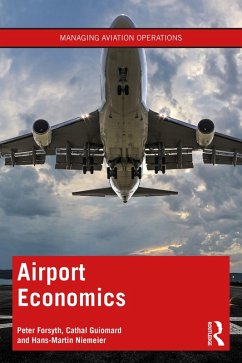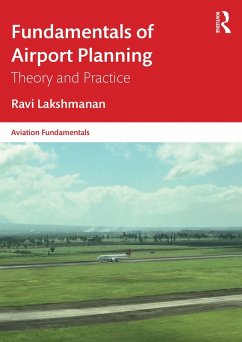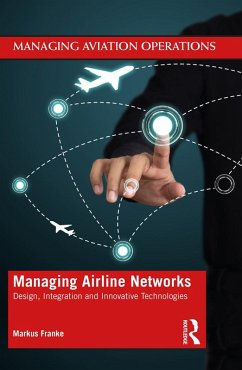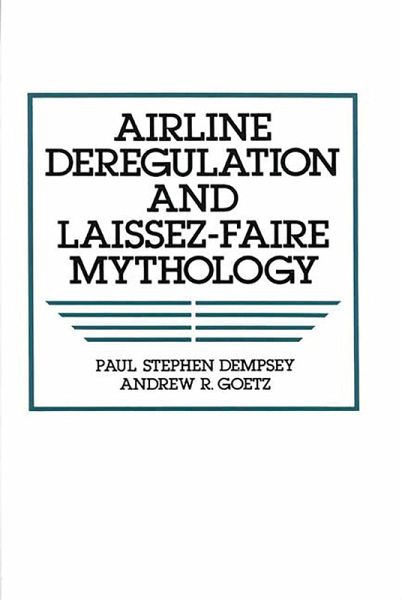
Airline Deregulation and Laissez-Faire Mythology (eBook, PDF)
Versandkostenfrei!
Sofort per Download lieferbar
58,95 €
inkl. MwSt.
Weitere Ausgaben:

PAYBACK Punkte
29 °P sammeln!
Airline deregulation is a failure, conclude Professors Dempsey and Goetz. They assault the conventional wisdom in this provocative book, finding that the Airline Deregulation Act of 1978, championed by a profound political movement which also advocated the deregulation of the bus, trucking, rail, and pipeline industries, failed to achieve the promises of its proponents. Only now is the full impact of deregulation being felt. Airline deregulation has resulted in unprecedented industry concentration, miserable service, a deterioration in labor-management relations, a narrower margin of safety, a...
Airline deregulation is a failure, conclude Professors Dempsey and Goetz. They assault the conventional wisdom in this provocative book, finding that the Airline Deregulation Act of 1978, championed by a profound political movement which also advocated the deregulation of the bus, trucking, rail, and pipeline industries, failed to achieve the promises of its proponents. Only now is the full impact of deregulation being felt. Airline deregulation has resulted in unprecedented industry concentration, miserable service, a deterioration in labor-management relations, a narrower margin of safety, and higher prices for the consumer. This comprehensive book begins by exploring the strategy, tactics, and egos of the major airline robber barons, including Frank Lorenzo and Carl Icahn. In separate chapters, the strengths, weaknesses, and corporate cultures of each of the major airlines are evaluated. Part Two assesses the political, economic, and social justifications for New Deal regulation of aviation, and its deregulation in the late 1970s. Part Three then addresses the major consequences of deregulation in chapters on concentration, pricing, service, and safety, and Part Four advances a legislative agenda for solving the problems that have emerged. Professors Dempsey and Goetz advocate a middle course of responsible government supervision between the dead hand of regulation of the 1930s and the contemporary evil of market Darwinism. The book will be of particular interest to airline and airport industry executives, government officials, and students and scholars in public policy, economics, business, political science, and transportation.




